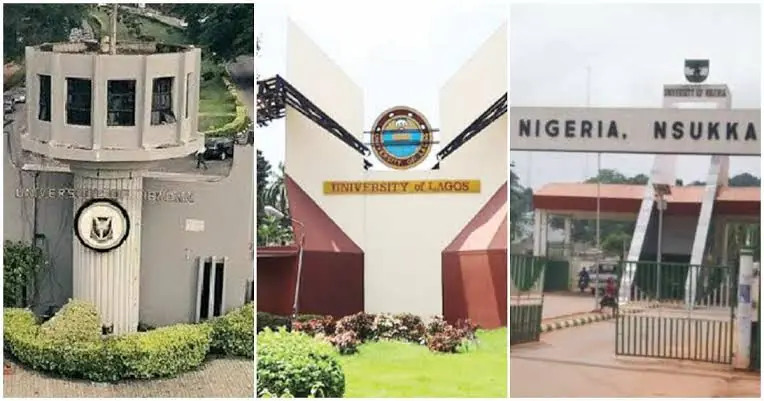In a development that has reignited conversations about higher education in Nigeria, the latest QS World University Rankings 2025 has revealed that no Nigerian institution has secured a spot in the top 1,000. The annual compilation by Quacquarelli Symonds features more than 1,500 universities across 105 higher‑education systems, yet none from Nigeria have made the cut this year.
This absence comes despite two Nigerian universities—the University of Ibadan (UI) and the University of Lagos (UNILAG)—being listed in the 1,100–1,200 band. While they remain within an extended range, their presence beyond the top 1,000 reflects a steep challenge in achieving global recognition.
Globally, elite institutions continue to dominate the chart. The Massachusetts Institute of Technology (MIT) retains its crown for the 13th year running, closely followed by Imperial College London, University of Oxford, Harvard University, and University of Cambridge. Meanwhile, higher‑education heavyweights like the U.S., the U.K., and China collectively contribute nearly 360 universities to the list, underscoring an increasingly competitive global landscape.

What This Means for Nigerian Higher Education
Nigeria’s exclusion from the top 1,000 sends a signal that demands urgent attention. This is not the first year Nigerian universities have faltered. Historically, first-generation institutions such as UI, UNILAG, Ahmadu Bello University (ABU), and University of Nigeria, Nsukka (UNN) appeared regularly in global rankings. But their visibility has eroded over recent years.
As of 2025, Covenant University—a privately owned institution—remains Nigeria’s sole representative, ranked between 801–1,000 in the Times Higher Education (THE) World University Rankings. Yet, in QS, even Covenant fell outside the top 1,000 along with public universities.
QS uses a holistic methodology—including academic reputation, employer standing, faculty-to-student ratios, research citations, and global engagement—to generate its rankings. For Nigerian institutions, the challenge is structural: catching up in areas like research output, international collaborations, and academic investments.
Nigeria’s experience mirrors a broader trend across Africa. Leading institutions from South Africa, Egypt, and Ethiopia — such as the University of Cape Town (#171), Stellenbosch (#296), and the University of Pretoria (#354) — continue to secure places in the top 1,000. Their relative success highlights regional disparities and suggests paths of improvement.

The Road Ahead
1. Funding & Infrastructure
Persistent underinvestment in research facilities, libraries, and laboratory infrastructure continues to hamper international competitiveness. Addressing these gaps is critical.
2. Research Output & Citations
The global ranking systems place high value on research publications. Nigerian universities must incentivise high‑impact studies, journal publications, and citation-generating work.
3. Internationalisation
Enhancing international partnerships, faculty mobility, student exchange programmes, and recruiting international staff can improve universities’ global visibility and appeal.
4. Institutional Autonomy & Governance
Reforms promoting autonomy—such as budgetary freedom, meritocratic management, and the drive to pursue excellence—can catalyse institutional growth.
Insights from policymakers and academicians already point to the structural deficits. On platforms like Reddit, discussions question whether rankings are biased against African universities due to funding challenges, lower alumni networks, and infrastructural shortfalls:
“They are mainly about citations in research papers … how would you proceed to judge the quality of education?”
Interestingly, participants also mention utility setbacks such as power outages affecting research consistency, factors not reflected in ranking data but critical to faculty performance.
Conclusion
Nigeria’s continued absence from the QS top 1,000 underscores the urgent need for comprehensive reforms in its tertiary education system. With multiple African universities forging ahead, Nigeria risks falling behind without strategic investments in research, global partnerships, and academic excellence.
Rankings like QS are more than prestige—they influence global collaborations, student recruitment, and funding opportunities. For Nigeria to be counted among the world’s best, its universities must reassess priorities, bolster capabilities, and commit to a vision of international competitiveness.
Join Our Social Media Channels:
WhatsApp: NaijaEyes
Facebook: NaijaEyes
Twitter: NaijaEyes
Instagram: NaijaEyes
TikTok: NaijaEyes
READ THE LATEST EDUCATION NEWS








































